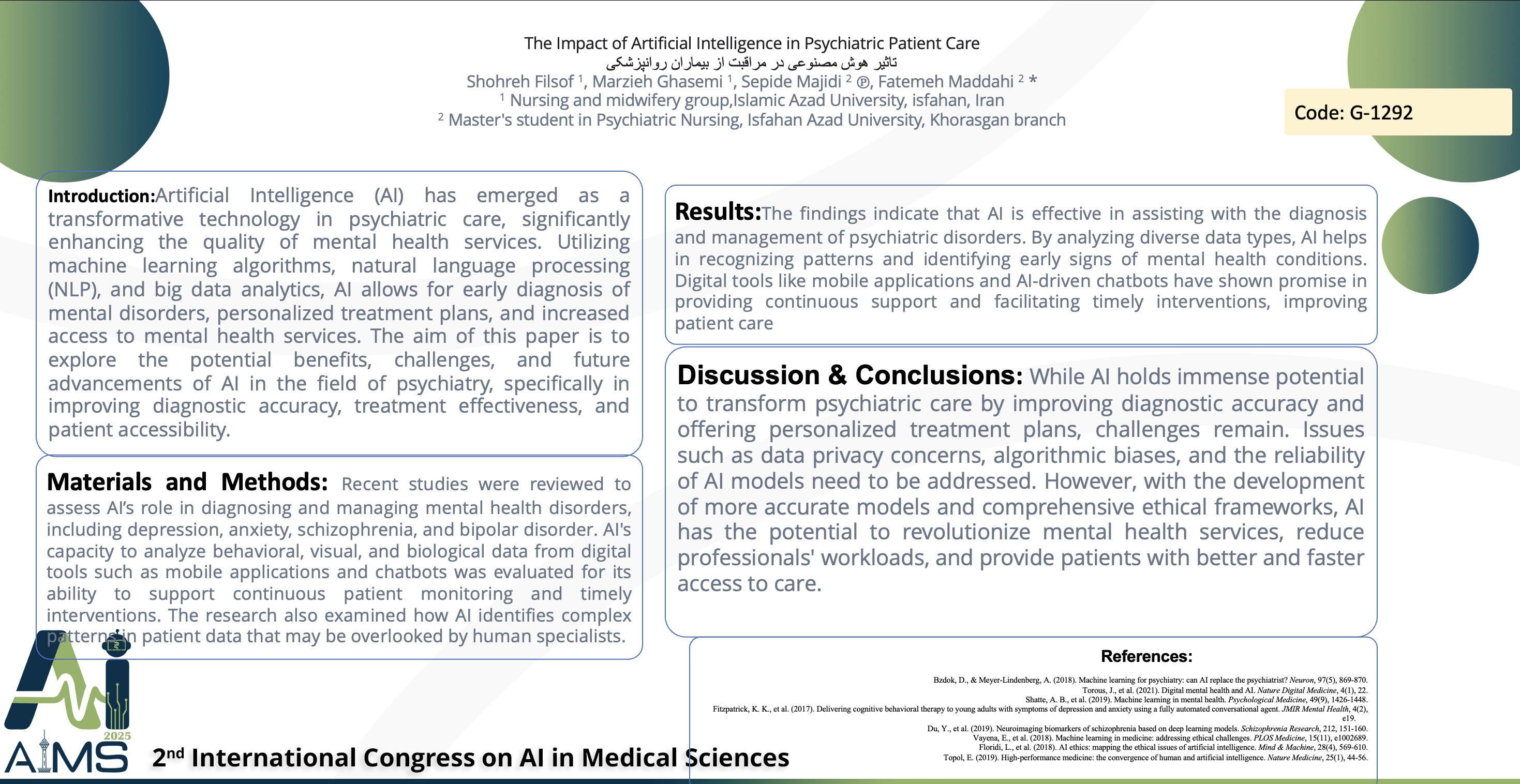The Impact of Artificial Intelligence in Psychiatric Patient Care
Code: G-1292
Authors: Shohreh Filsof, Marzieh Ghasemi, Sepide Majidi ℗, Fatemeh Maddahi *
Schedule: Not Scheduled!
Tag: Clinical Decision Support System
Download: Download Poster
Abstract:
Abstract
Background and Aims: Artificial Intelligence (AI) has emerged as a transformative technology in psychiatric care, significantly enhancing the quality of mental health services. Utilizing machine learning algorithms, natural language processing (NLP), and big data analytics, AI allows for early diagnosis of mental disorders, personalized treatment plans, and increased access to mental health services. The aim of this paper is to explore the potential benefits, challenges, and future advancements of AI in the field of psychiatry, specifically in improving diagnostic accuracy, treatment effectiveness, and patient accessibility. Method: Recent studies were reviewed to assess AI’s role in diagnosing and managing mental health disorders, including depression, anxiety, schizophrenia, and bipolar disorder. AI's capacity to analyze behavioral, visual, and biological data from digital tools such as mobile applications and chatbots was evaluated for its ability to support continuous patient monitoring and timely interventions. The research also examined how AI identifies complex patterns in patient data that may be overlooked by human specialists. Results: The findings indicate that AI is effective in assisting with the diagnosis and management of psychiatric disorders. By analyzing diverse data types, AI helps in recognizing patterns and identifying early signs of mental health conditions. Digital tools like mobile applications and AI-driven chatbots have shown promise in providing continuous support and facilitating timely interventions, improving patient care. Conclusion: While AI holds immense potential to transform psychiatric care by improving diagnostic accuracy and offering personalized treatment plans, challenges remain. Issues such as data privacy concerns, algorithmic biases, and the reliability of AI models need to be addressed. However, with the development of more accurate models and comprehensive ethical frameworks, AI has the potential to revolutionize mental health services, reduce professionals' workloads, and provide patients with better and faster access to care. Keywords: Artificial Intelligence, psychiatric care, mental health, early diagnosis, personalized treatment, data privacy, algorithmic bias, digital tools, continuous monitoring.
Keywords
Artificial Intelligence, Psychiatric Care, Mental Health
